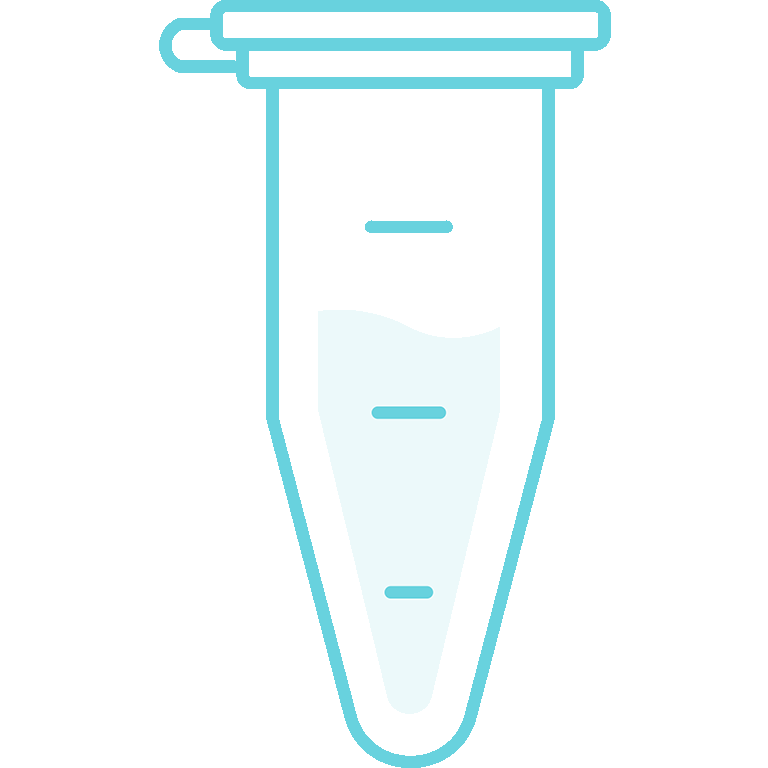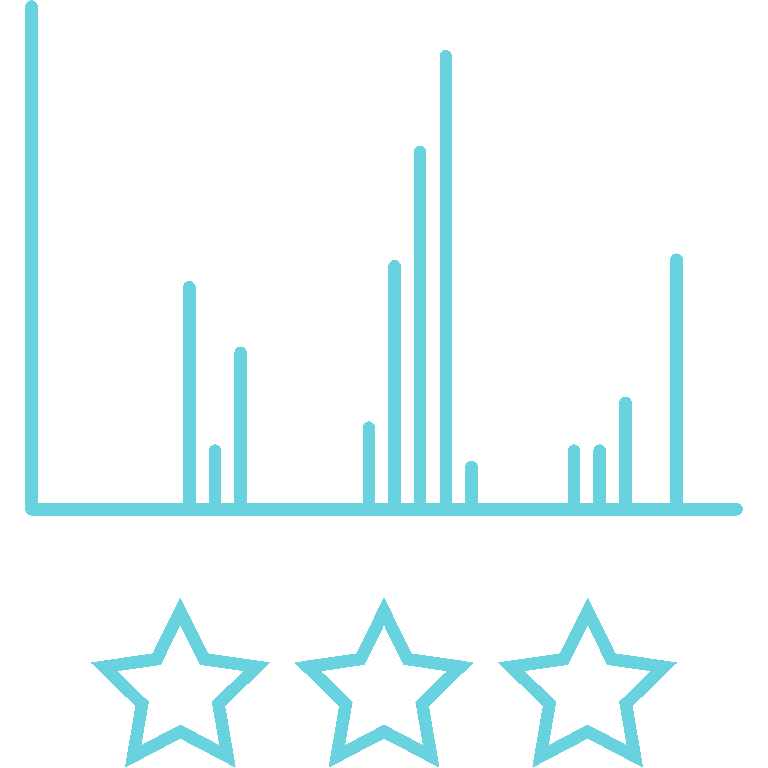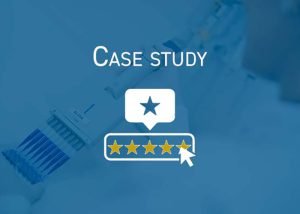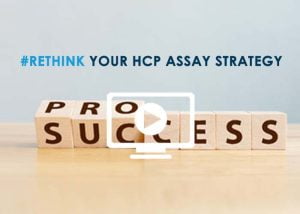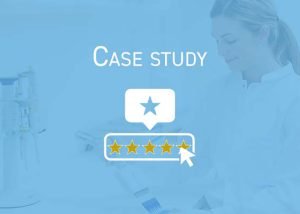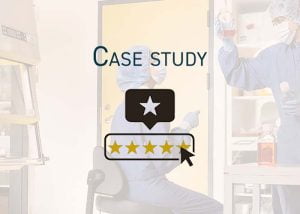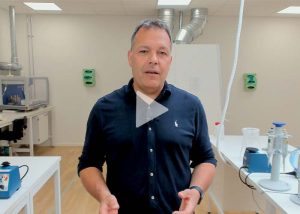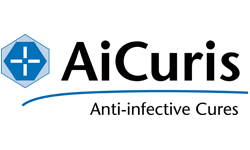Data for regulatory documentation
Regulatory requirements aim to ensure patient safety and efficacy of the pharmaceuticals. Maintaining compliance with increasingly complex regulatory requirements without unduly impacting production costs or time-to-market is one of the biggest challenges for biopharmaceutical companies.
Protein analysis by Mass spectrometry (LC-MS), produced to fulfill ICH guidelines, enables you to document the robustness of your downstream process, provides detailed information about critical quality attributes and host cell impurities, and shows batch-to-batch comparability. The analysis can even be validated according to ICH guidelines under GMP for use as product release testing.
Alphalyse HCP analyses comply with the upcoming U.S. Pharmacopeia general chapter 1132.1 on best practices for protein impurity identification and quantitation using LC-MS, including the USP's intact protein standards to support the identification and quantification of high-risk and high-abundance protein impurities.
Which data can Alphalyse provide for regulatory documentation?
Robust, reproducible data for process validation and risk assessment
Process and product characterization for documentation in accordance with regulatory guidelines
Chemistry, manufacturing, and control (CMC) information
Detailed data on drug substance identity, purity, and quality for CTD, IND, NDA, and BLA submissions
HCP analysis under GMP for release test and clinical trial documentation
Quality control of biological API using analysis under GMP conditions – for use as release assay for Phase III and market
Enzyme-linked immunosorbent assay (ELISA) is the standard method for monitoring Host Cell Protein (HCP) clearance. To ensure patient safety and product efficacy, the critical reagent of an HCP ELISA, the HCP antibody, must be demonstrated to cover a broad spectrum of the HCPs potentially present in the purified drug substance. However, traditional coverage methods for assessing HCP antibody coverage, such as 2D-Western blot or immunoaffinity-purification combined with 2D gel electrophoresis, are increasingly not sufficient to validate the coverage of an HCP ELISA with regulatory authorities.
Alphalyse's proprietary ELISA-MS™ analysis uniquely combines ELISA-based immunocapture with liquid chromatography mass spectrometry (LC-MS) under native conditions. Using ELISA-MS™, we provide accurate, reproducible data for evaluating and validating your ELISA as required by regulatory authorities.
We can assist you with:
- Performing HCP-ELISA coverage analysis.
- Demonstrating that your HCP-ELISA is fit-for-purpose.
- Verifying ELISA results using orthogonal methods to identify and fully characterize individual HCPs of concern.
- Performing detailed risk assessment and closely monitoring process performance parameters.
- Thorough bridging between new ELISA kits and reagents or process changes.
Developing a process-specific ELISA usually requires 1 - 2 years for antibody development and assay validation. Furthermore, if the HCP coverage of your ELISA is insufficient, you risk delayed regulatory approval due to inadequate impurity detection and clearance.
LC-MS assays require only 6-8 weeks of development for any biologic product, which can significantly accelerate the development, marketing approval, and commercial manufacturing of biopharmaceuticals. Furthermore, a fully validated assay under GMP conditions can be in place within 4-6 months.
LC-MS provides the detailed analytical data needed for developing chemistry, manufacturing, and controls (CMC) and for satisfying regulatory requirements. Our clients have had Investigative New Drug (IND) submissions approved by US and EU regulatory authorities based only on LC-MS data; no time- and resource-consuming ELISA is required. LC-MS-based HCP analysis has also been approved as a release assay under Good Manufacturing Practice (GMP).
You need an IND (Investigational New Drug) application to seek an exemption to administer and dispense investigational drugs, whereas the BLA (Biologics License Application) is a request for permission to introduce a biologic into commerce. The data provided in these documents must fulfill the ICH Q6B guidelines to be accepted by the regulatory authorities.
There has been an increased focus from regulatory authorities on orthogonal data for HCPs using MS since traditional methods for HCP analysis do not allow for characterization of individual high-risk or high-abundance protein impurities. This is particularly concerning for mAb products, which are typically administered to patients with high frequency and concentration, but all drug product development benefits from good patient safety precautions. Regulatory authorities increasingly demand more detailed information about potential risks, and the lack of such data has delayed many projects.
All our analyses are made to fulfill ICH guidelines and can be submitted as part of regulatory documentation. Our clients routinely use the data for INDs, BLAs, and for moving through the clinical phases. You receive the data in easy-to-understand reports, and all raw data can be supplied in Excel sheets and mass spec formats if needed.
Typical project process
You typically work with
these experts:



Project scope
We like to start with an online meeting to learn more about your project. Based on your needs, you will receive a draft proposal outlining the suggested analyses and expected timeframe.
Samples
After signing the final project proposal, we will contact you for details about your samples. We will inform you of an estimated report delivery date as soon as we receive your samples.
Execution
A project leader will oversee the project and send you status updates by email at regular intervals.
A typical project includes:
- Analysis of at least three batches and relevant process samples by LC-MS to identify the HCPs across batches.
- Selection of signature peptides for assay set-up.
- Optimized sample preparation explicitly for your samples.
- Spike-in of internal standard proteins (0-2000 ppm), enabling quantification linearity typically to low ppm levels.
- Design of validation protocol according to ICH Q2 guidelines.
- Execution of the validation experiments.
Results
You will receive the report by email, the analysis report includes:
- Objectives, description of analytical procedure, results, and conclusions.
- Selected raw data, e.g., excel sheets. You may request additional raw data if needed.
Follow up
We invite your team to review the results at an online meeting upon project completion.
Curious to know more?
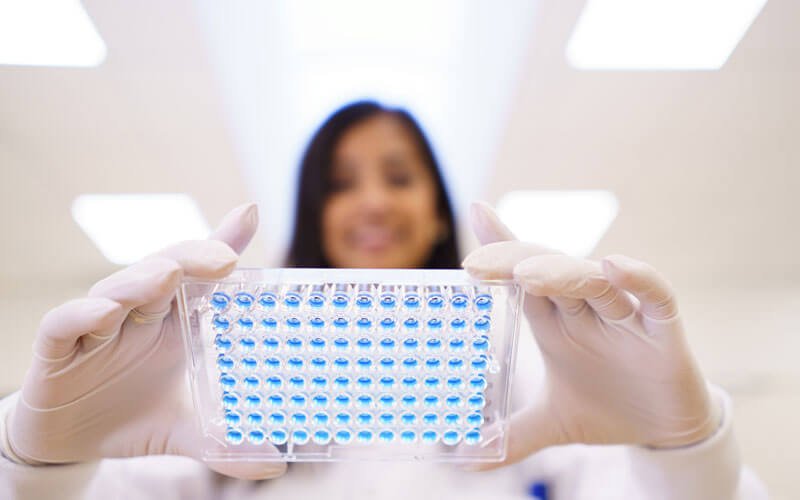
Whatever challenge or question you may have, we are here to help you solve it. One of our protein analysis experts will discuss the best analysis approach or method for your project by email or online meeting – without obligation.
Client stories
Identifying a polysorbate-degrading lipase in mAbs
Troubleshooting HCP ELISA results using LC-MS and ELISA-MS™
Characterization of a mock sample before ELISA development
Selecting the best HCP-ELISA kit out of five
PDF: Standard HCP assay validation protocol
Webinar: #Rethink your HCP strategy
FDA approves IND using LC-MS-based Host Cell Protein assay
HCP-ELISA coverage analysis without a null cell line
Quantifying lentivirus and residual proteins in one assay
Video: HCP purification optimization from harvest to final DS
Webinar: Moving LC-MS analysis into a GMP environment
Video: Qualification report used for IND application
Video: Convincing documentation of HCP Clearance in PPQ runs
Webinar: The principles of mass spectrometry for HCP analysis
Webinar: Design the optimal strategy for analyzing Host Cell Proteins
Benefits of LC-MS data for regulatory documentation
Suitable for providing data packages to the FDA, MHRA, and EMA.
A process- and product-specific assay can be developed within weeks. 'Furthermore, it is possible to validate the assay for release testing.
It can easily be adjusted to changes in your process or production.
Avoid project delays due to regulatory authorities' request for orthogonal HCP characterization (MS-data).
What clients say
Knowledge center
What is the future role of LC-MS for release testing?
We expect that the use of LC-MS protein analysis will increase rapidly over the next couple of years and that it will soon be the industry release testing assay of choice for:
- Fast-tracked projects for which a suitable commercial ELISA kit is unavailable and developing custom-made assays is too time-consuming, e.g., during pandemics
- Complex products with proteins from multiple sources
- Monitoring clearance of specific proteins of concern, e.g., enzymes added during manufacturing and HCPs affecting product stability or patient safety.
Has anyone filed a Phase 1 product with HCP analysis based solely on MS results?
Yes, several of our clients have received IND submission approvals using HCP analysis based solely on MS data provided by Alphalyse. Several have also been approved for Phase 3 clinical trials using an MS-only strategy, and we expect one of our clients to file for their BLA with an MS-based HCP release test very soon.
Why has no one else been able to set this up under GMP?
Setting up robust and quantitative mass spectrometry-based impurity analysis is complicated. It requires complex and costly top-of-the-line instruments, a diverse team of highly-skilled experts with LC and protein analysis experience, and reproducible (preferably automated) sample preparation. It has taken us 10+ years of dedicated research to achieve this as the first and so far only laboratory in the world.
Research article:
Videos:
- Qualification report
- Analysis of gene therapies
- Analysis of residual protein in viral products
- Analysis of bacteriophage product
- Coverage Analysis by ELISA-MS
- Selecting the best suited HCP-ELISA
- Target protein detection
- Orthogonal HCP analysis for mAbs
- HCP analysis of PPQ runs
- GMP-validated HCP analysis based on LC-MS
Protocol:
Cases:
- FDA approves IND using LC-MS-based Host Cell Protein assay
- Troubleshooting HCP ELISA results using LC-MS and ELISA-MS™
- Analyzing heterogeneous HCP mix from multiple species
- Comparing viral protein quantities between AAV batches and drug products
- Quantifying lentivirus and residual proteins in one assay
- Documenting product stability and residual proteins
- HCP-ELISA coverage analysis without a null cell line
- Selecting the best HCP-ELISA of 5 kits
- Characterization of an ELISA standard
Poster:
Blog post:
Talk to us
Whatever protein-related challenge or question you may have, we would love to help. Our experts can help you decide on the best analytical approach for your project by email or online meeting - providing advice without obligation.

